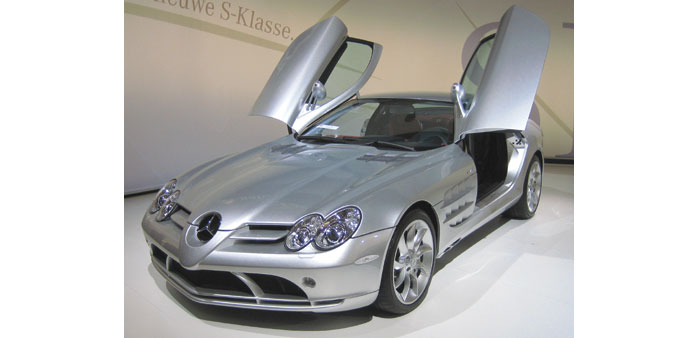Mercedes-Benz is investing $19mn in China to build its biggest training facility in the world for car dealers as it strives to catch up with rivals Audi and BMW.
Dow Jones/Shanghai
Daimler’s Mercedes-Benz is investing $19mn in China to build its biggest training facility in the world for car dealers as it strives to catch up with rivals Audi and BMW.
“It serves as a stone in the foundation of the house we’re building in China,” said Nicholas Speeks, head of Mercedes’s sales and service arm in China. “We’re cognizant of the fact our competitors are also growing strongly from a much higher base. We need to put our foot on the pedal and gear up.”
Speeks was speaking to reporters yesterday at the launch of the Mercedes-Benz training centre in Shanghai. He said the German luxury-car company will add 100 new distribution outlets for its cars in China this year, bringing the total to around 440.
The move underscores China’s emergence as the most important driver of growth for Germany’s premium brands, which together hold more than 70% of China’s luxury market for cars.
It also comes amid a broader antitrust campaign by the Chinese government that has taken aim at a variety of foreign brands ranging from pharmaceutical producers to luxury-car makers.
China’s Economic Observer on Friday cited unnamed sources as saying that the country’s top economic planner, the National Development and Reform Commission, summoned executives of foreign car makers last week as part of an antitrust probe. The report said that luxury-car makers including Mercedes may be targets of the campaign.
Speeks said he isn’t aware of any antimonopoly investigation into Mercedes, but said the company had a number of conversations with the NDRC. “Certainly they have addressed some concerns to us,” he said. “But it’s an ongoing conversation.”
Speeks acknowledged past criticism about the high cost repairs for Mercedes vehicles in China, but said it recently introduced a new servicing program in the country that could reduce customers’ repair costs by as much as 20%.
In the first six months of this year, market leader Audi AG sold 268,666 vehicles, up 18% in the first six months of 2013, compared with a year earlier, while BMW sold 210,765 cars, a 23.4% increase.
Mercedes, which got off to a slow start in China, has been picking up the pace. It recorded 135,972 sales in the first half of this year, up 38% from the same period a year earlier. “The market is solid and I believe it will continue to be that way,” said Speeks.
China is expected to become the world’s largest market for high-end cars by as soon as 2016, according to consultancy McKinsey as the country’s middle class expands and more young drivers look to luxury brands when selecting a car.
Speeks said sales of Mercedes cars in China will exceed 250,000 vehicles this year. The company had previously stated a goal of achieving sales of more than 300,000 cars in China in 2015.

